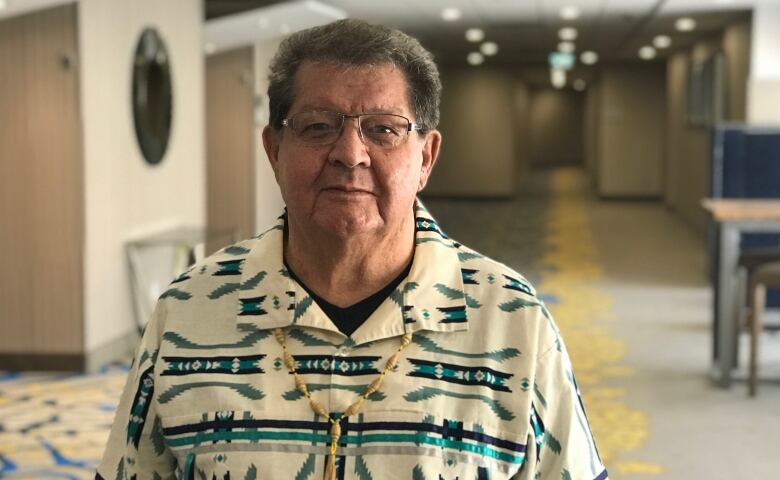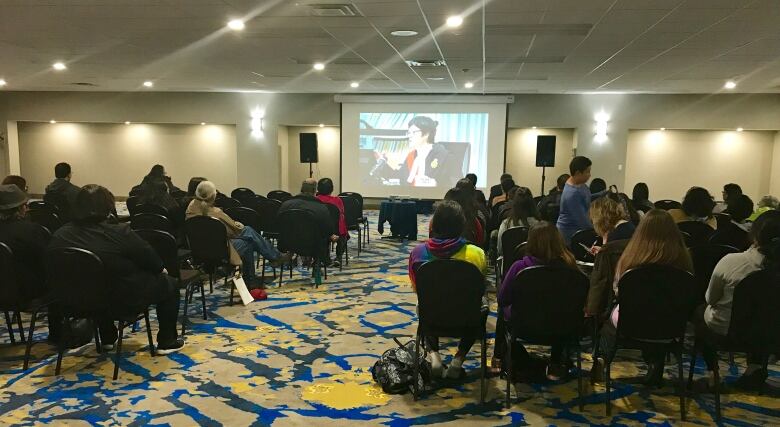Closing arguments begin in Sudbury in landmark treaty annuity case
First Nations arguing for increase to $4 annual payments for individuals

Closing arguments are underway in Sudbury in a landmark case involving treaty annuities for First Nations in Ontario under the Robinson-Huron and Robinson-Superior treaties.
The treaties, signed in 1850, outline annualpayments for individuals, but those haven't increased from $4 per person since 1874. So First Nations took the provincial and federal governments to court over the annuities, with hearings beginning in Thunder Bay last September.
Mike Restoule, chair of the Robinson Huron Litigation Fund that represents 21 First Nations says there's "a lot of money at stake" as a result of the Crown withholding increases.
"The First Nations are arguing for an increase in the treaty by way of the Crown presenting us with a calculation of the revenue that has been gained in the treaty territory since the 1800s. And we're looking at how we can resolve that in a way that is fair to both parties," he said outside of the Ontario Superior Court hearing room at the Radisson Hotel in Sudbury.

Lawyers for the First Nations began their closing arguments Monday. Legal counsel for the provincial and federal governments are expected to respond next week before offering their closing arguments.
This stage is scheduled to wrap up by the end of the month, withJusticePatricia Hennessy expected to deliver a decision by December, according to Restoule.
'It's a momentous occasion'
While any potential resolution to the annuities issue is still months away, First Nations leaders who travelled to Sudbury for the closing arguments believe getting this far is"historic" for their communities.
"It's a momentous occasion for many of our people," said Chief Duke Peltierof WikwemikongUncededTerritory."These are petitions that we're bringing forward that our ancestors had previously lobbied and advocated for all of our people to be treated fairly and derive some benefit from our territory."
More than 50 people gathered in a nearbyoverflow roomon Monday to watch the proceedings, which are also being livestreamed online.
"This is really empowering. It's very beautiful to see our people come here by the busload," said Chief Dean Sayers of Batchewana First Nation.
"It's actually pretty emotional for me. It's a culmination of a lot of ancestors' efforts that have brought us here today."

$4 payment 'a slap in the face'
While the current annuity amount isn't ideal, Peltiercalls the agreement a "symbolic gesture" that both sides have to acknowledge.
"The current level that they'reat, $4, is essentially a slap in the face. However, it is important for our people to collect it, because that is the basis of the relationship that we do have with the Crown, and that solidifies the terms of the treaty that our people undertook in 1850," said Peltier.
Sayersbelieves this process is an opportunity to reexamine and reset the treaty relationship between First Nations and governments.
"We have to go down those roads of exploration, and how we can mutually benefit and how we can put wheels on the bus," he said."We're not open to a renegotiation of the treaty, we only need to see implementation of the existing treaty obligation and commitments to each other."












_(720p).jpg)


 OFFICIAL HD MUSIC VIDEO.jpg)
.jpg)



























































































